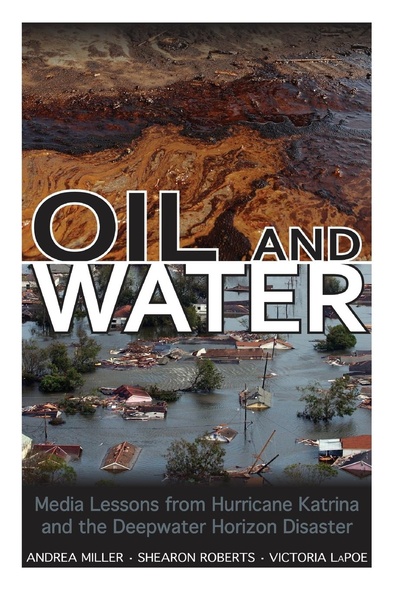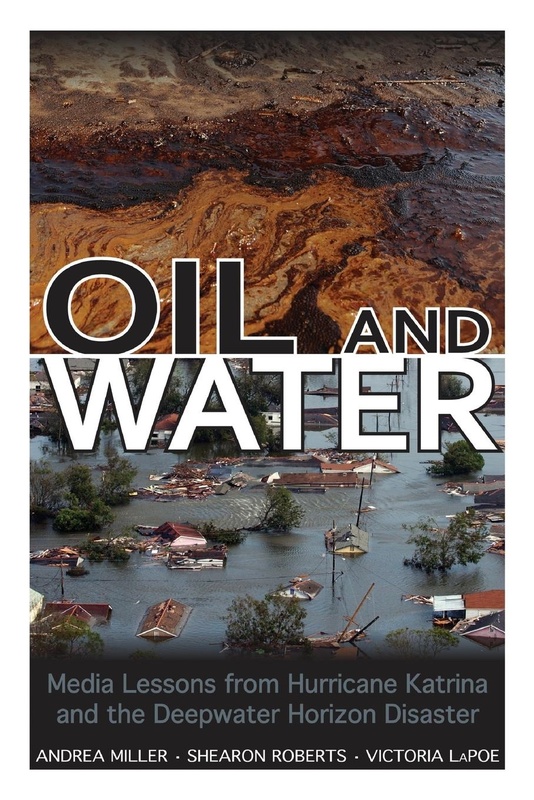
Oil and Water
Media Lessons from Hurricane Katrina and the Deepwater Horizon Disaster
Along the Gulf Coast, history is often referenced as pre-Katrina or post-Katrina. However, the natural disaster that appalled the world in 2005 has been joined by another catastrophe, this one man-made—the greatest environmental and maritime accident of all time, the Deepwater Horizon Oil Spill. In less than five years, the Gulf Coast has experienced two colossal disasters, very different, yet very similar. And these two equally complex crises have resulted in a steep learning curve for all, but especially the journalists covering these enduring stories.
In Oil and Water, the authors explore the media-fed experiences, the visuals and narratives associated with both disasters. Katrina journalists have reluctantly had to transform into oil spill journalists. The authors look at this process of growth from the viewpoints not only of the journalists, but also of the public and of the scientific community. Through a detailed analysis of the journalists’ content, the authors tackle significant questions. This book assesses the quality of journalism and the effects that quality may have on the public. The authors argue that regardless of the type of journalism involved or the immensity of the events covered, successful reportage still depends on the fundamentals of journalism and the importance of following these tenets consistently in a crisis atmosphere, especially when confronted with enduring crises that are just years apart.
Oil and Water describes in depth and detail what has happened to the media in Louisiana. But it’s more than that. It’s a microcosm of what has happened in every community in America.
Oil and Water takes a sharp look at disaster reporting and examines the multitude of local and national coverage following Hurricane Katrina and the Gulf oil spill. It’s an essential read for both journalists and consumers to get a better understanding of journalism amid crisis.
The must-read book before parachuting off to the next disaster scene—even for the most seasoned network news veteran. Oil and Water wades into disaster reporting that ranged from the shallow to the deep and emerges with a cohesive chronicle of the media chaos following Katrina. The authors also carefully compare and contrast how two of the worst disasters to hit the Gulf Coast produced some of this country’s best local journalism—ever.
The authors have penned a thought-provoking commentary on contemporary journalism and its role in the evolving genre of ‘disaster reporting.' Louisianans know better than most about national and man-made disasters; Oil and Water reminds us of the sometimes disproportionate impact the media has on how perceptions are shaped.
Andrea Miller is associate dean for undergraduate studies and administration at the Manship School of Mass Communication at Louisiana State University. Her work has appeared in many journals. Shearon Roberts is a native of Trinidad and assistant professor of mass communication at Xavier University of Louisiana. She contributed to Covering Disaster: Lessons from Coverage of Katrina and Rita. Victoria LaPoe is assistant professor at Western Kentucky University. She is author of American-Indian Media: The Past, the Present, and the Promise of Digital.





